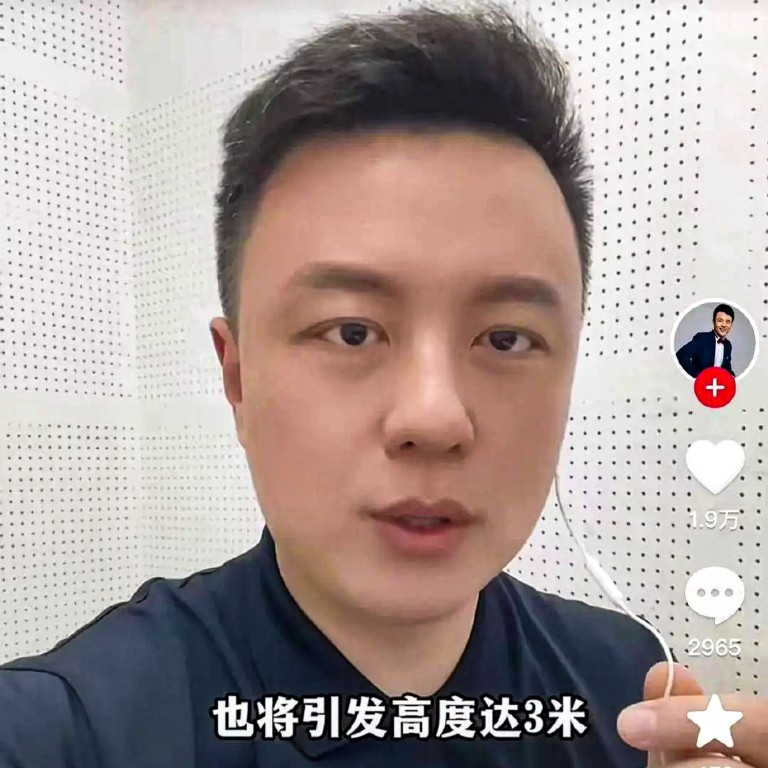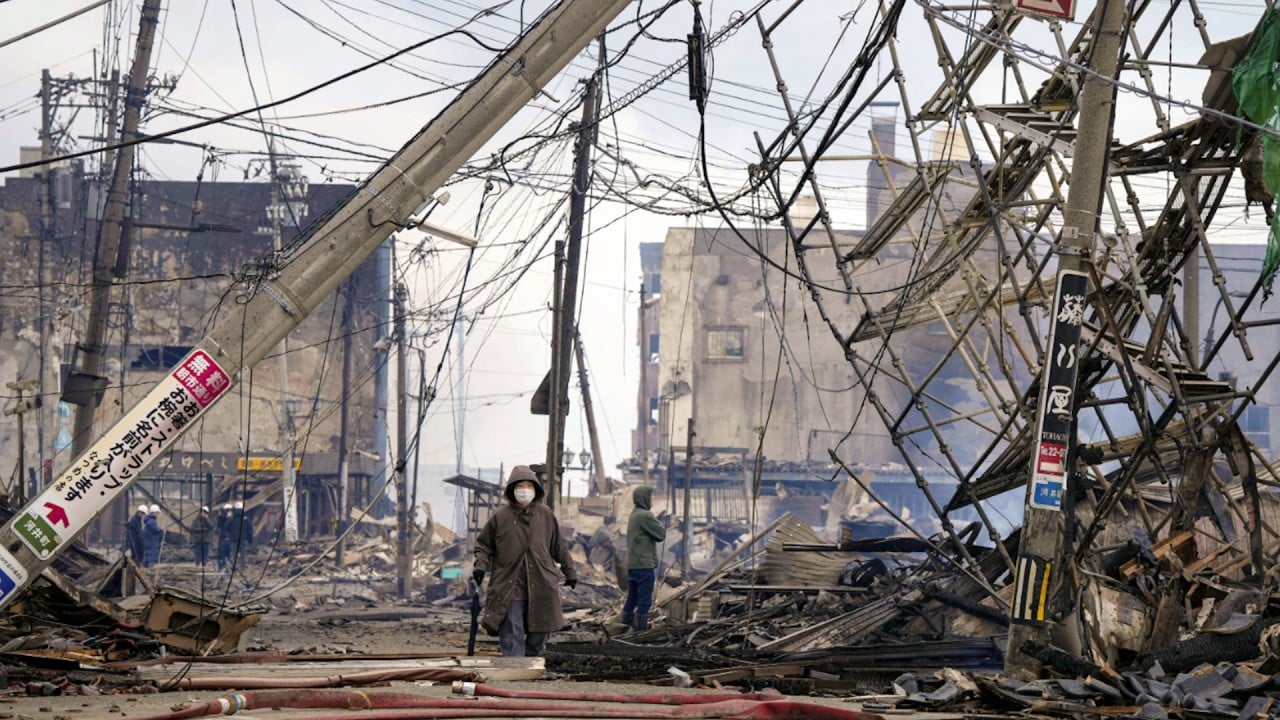
Chinese TV host suspended after ‘inappropriate’ Japan earthquake comments go viral
- Broadcaster sidelines anchor Xiao Chenghao after he suggested disaster was punishment for Japan’s discharge of nuclear waste water
- Chinese premier extends condolences to Japanese prime minister over deadly earthquake, offers Beijing’s help
A Chinese TV host in the southern island province of Hainan has been suspended after his comments about a deadly earthquake in central Japan on New Year’s Day.
On Monday, the day the earthquake struck, Xiao Chenghao, an anchor with the regional Hainan Broadcasting Group, posted a video titled “A comeuppance arrived? A 7.4-magnitude earthquake hit Japan”.
“It is surprising that on the first day of 2024, such a powerful earthquake occurred in Japan,” he said in a video that went viral on Chinese social media, but has since been deleted from his personal account.
“With such a large-scale natural disaster happening on the first day of the year, I’m afraid Japan will be shrouded by gloomy clouds for all of 2024.
“Perhaps [Japan should] do some deeds less, and should not have discharged nuclear water into the sea.”
Xiao’s “inappropriate comments” prompted the company to suspend him and investigate the incident, the broadcaster said in a statement on Tuesday, without elaborating.
The presenter, who has commented regularly about current affairs on social media platform Weibo, has more than 230,000 followers.
Xiao has not apologised since he was suspended.
The employer’s decision prompted debate on Chinese social media, with some saying his video was inappropriate and unprofessional, while others agreed with his comments and questioned the employer’s move.
When the news about the powerful quake in Ishikawa prefecture broke on Monday, Chinese netizens appeared to be split in their reactions. While many were sympathetic to the victims and their families, some gloated about the disaster.
Hate speech that has been allowed on China’s tightly controlled social media has caused growing concerns about extremist views.
Hate speech on Chinese social media has also surfaced over other international events such as the Israel-Gaza war, which has prompted a surge of antisemitic views online.
Ties between China and Japan have been strained for many years over a range of issues, including the Japanese occupation of China during World War II, disputed territorial claims in the East China Sea, and – more recently – US-Japan security cooperation.
Influencer under fire for saying China deadly quake had ‘nothing to do with her’
Recent tensions, such the controversy over Japan’s release of wastewater from nuclear plants in August, have added to long-held grievances among the Chinese public, especially among those with more nationalistic views.
On Wednesday, Chinese Premier Li Qiang expressed condolences on behalf of the Chinese government to Japanese Prime Minister Fumio Kishida. “China is willing to provide necessary assistance to Japan’s earthquake relief efforts,” he said in a phone call to Kishida.
No injuries or deaths of Chinese nationals had been reported, according to China’s foreign ministry.
Tens and thousands of homes have been damaged or destroyed in the disaster, while water, power and mobile phone services were still down in some areas on Wednesday afternoon, according to Japanese media.


